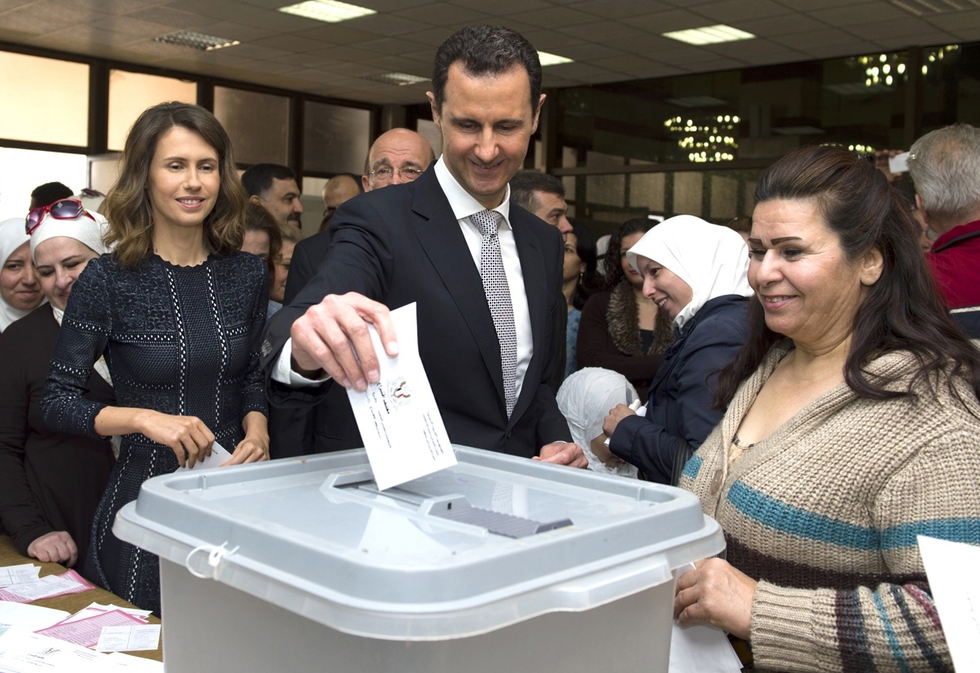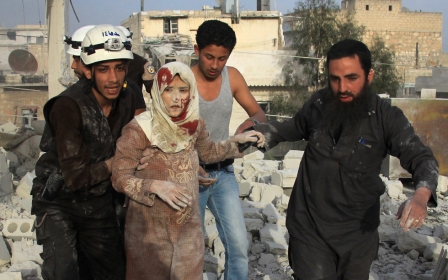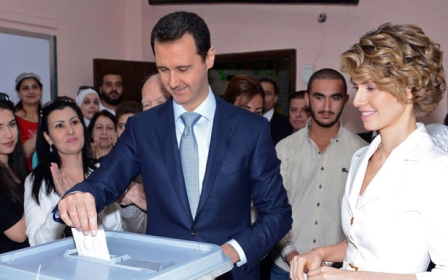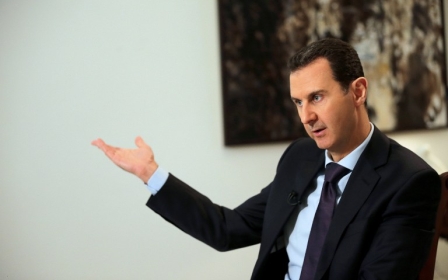Assad party wins expected majority in Syria parliamentary vote
The United Nations says it does not recognise Syria's parliamentary election, which took place while the country is torn apart by civil war

A picture released by the official Syrian Arab News Agency on 13 April, 2016 shows Syrian President Bashar al-Assad and his wife Asma (L) casting their votes (AFP)
Published date: Dimanche 17 avril 2016 - 13:27
|
Last update: 8 années 7 mois ago
Syria's ruling Baath party and its allies won a majority of seats in parliamentary elections last week across government-held parts of the country, the national electoral commission announced late on Saturday.
In a widely expected victory in polls labelled a "farce" by Syria's opposition, President Bashar al-Assad's Baath movement and its allies ran under the "National Unity" coalition and won 200 of the parliament's 250 seats.
Syria's national electoral commission published the names of all candidates who had won seats in the 13 April vote, according to Syria's state news agency SANA.
Every candidate on the 200-strong "National Unity" list had won.
"Out of 8,834,994 eligible voters, more than five million cast their votes," commission head Hisham al-Shaar was quote as saying.
A record 11,341 candidates initially sought to run in the elections. About 3,500 candidates remained after the rest withdrew, "saying they had no chance of winning," al-Shaar said.
The ruling Baath party has governed Syria for the past half-century.
The vote is the second parliamentary ballot since the beginning of the war in 2011, but the UN says it will not recognise the election.
More than 270,000 people have died since Syria's conflict broke out, and millions more have been forced to flee their homes.
The country's economy has all but collapsed and large areas of territory remain out of government control.
Representatives of Syria's government and opposition are in Geneva this week for UN-backed peace talks seeking to put an end to the violence.
The talks are aiming to lead to a political transition, a new constitution, and fresh presidential and parliamentary elections by September 2017.
Middle East Eye propose une couverture et une analyse indépendantes et incomparables du Moyen-Orient, de l’Afrique du Nord et d’autres régions du monde. Pour en savoir plus sur la reprise de ce contenu et les frais qui s’appliquent, veuillez remplir ce formulaire [en anglais]. Pour en savoir plus sur MEE, cliquez ici [en anglais].




